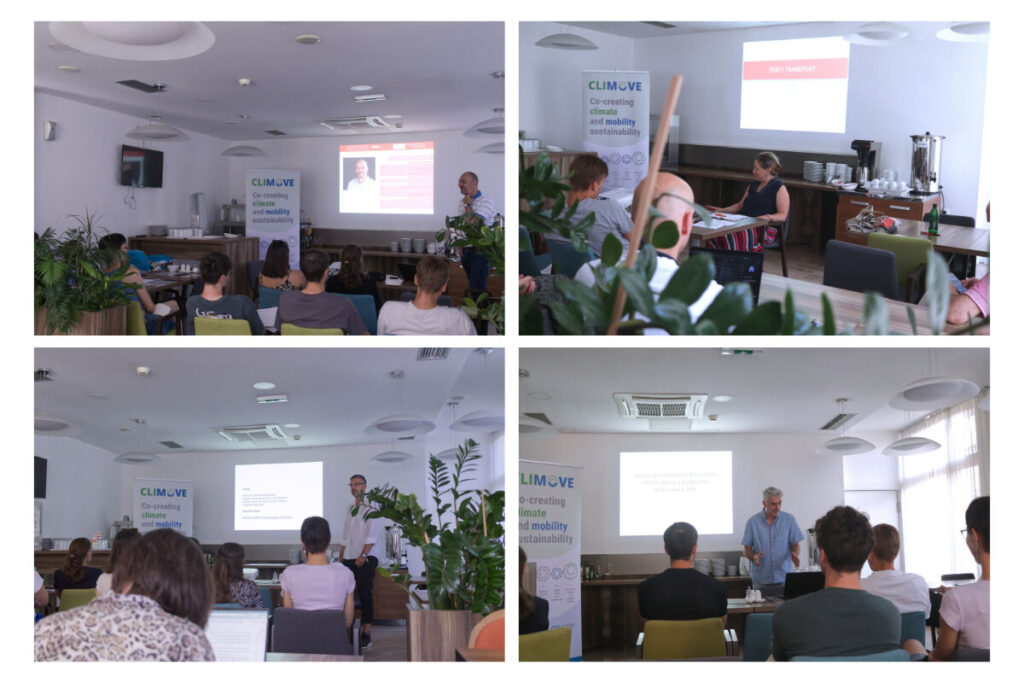Center for Environment organized the third Summer School of Urban Mobility in Mostar from July 21 to 25, 2025. This activity was carried out within the framework of the CLIMove project, in which the Center and CDV – Centrum dopravního výzkumu, v.v.i. are partners of ODRAZ – Sustainable Community Development.
During the five days of the summer school, students had the opportunity to become more familiar with the topic of urban mobility, exploring both different possibilities and practices, as well as the challenges within this field.

The Summer School of Urban Mobility opened with film screenings, and already on the first day of lectures, participants attended a lecture by Ante Klečina from the University North on the principles and models of organizing public passenger transport as well as integrated passenger transport. Students had the opportunity to reflect on travel routes and departure intervals using the city of Mostar as an example. The lecture continued with Ahmed Ćerimović, director of the NextBike BiH franchise, on the importance and functioning of the bike-sharing system. After the final lecture, students had the chance to design an expansion of the NextBike system in Mostar under two different budget scenarios.

The following day included a field visit to locations of interest in Mostar, hosted by representatives of the HerzegovinaBike association – Igor Bašić, Ivo Čerkez, and Mario Marić. The day continued with a lecture by Igor Velić (Safe Routes, Bor and the Institute for Urban Mobility of Serbia) on the topic “Philosophy of Space.” After Igor, Dragana Dardić from the Helsinki Citizens’ Assembly Banja Luka delivered a lecture on Gender and Transport. This session continued with field research counting the gender ratio of passengers in various modes of transport.

On Thursday, the lectures were opened by Doc. Dr. Igor Kuvač (AGGF UNIBL) on the topic “Urban Mobility, from Theory to Practice.” Afterwards, Vladimir Borisavljević and Boris Badža from the design company Urbis Center continued with lectures, presenting various challenges that the profession encounters in the planning process, as well as the role of GIS tools in planning and analyzing needs in the field of urban mobility. That day, students also had the opportunity to learn about different examples and initiatives being implemented in Zagreb, presented by Zvonimir Lozić from the Zagreb Cyclists’ Union. The day concluded with a presentation on the importance of participatory decision-making models, with a focus on urban mobility and spatial planning. This session was led by Jelena Brkić, an expert in civic participation.

The Summer School concluded on Friday with a presentation of the activities of the citizen initiative Banja Luka Critical Mass, group work on designing the primary network of cycling infrastructure in Mostar, and the awarding of certificates to participants.
The CLIMove project addresses the need for sustainable urban mobility in Central and Eastern Europe (CEE). It promotes climate-neutral urban mobility through capacity building, education, and cooperation of various stakeholders in Croatia, the Czech Republic, Slovakia, and Bosnia and Herzegovina. The goal of the project is to empower local authorities, young professionals, and the public to implement sustainable mobility solutions.
This project is part of the European Climate Initiative (EUKI).


